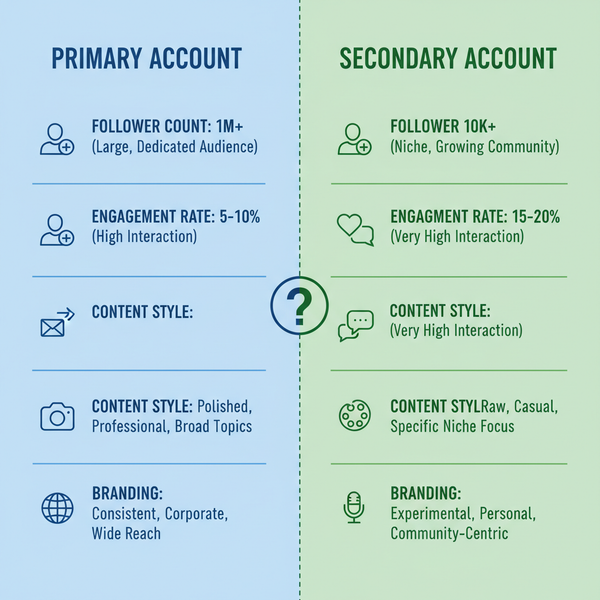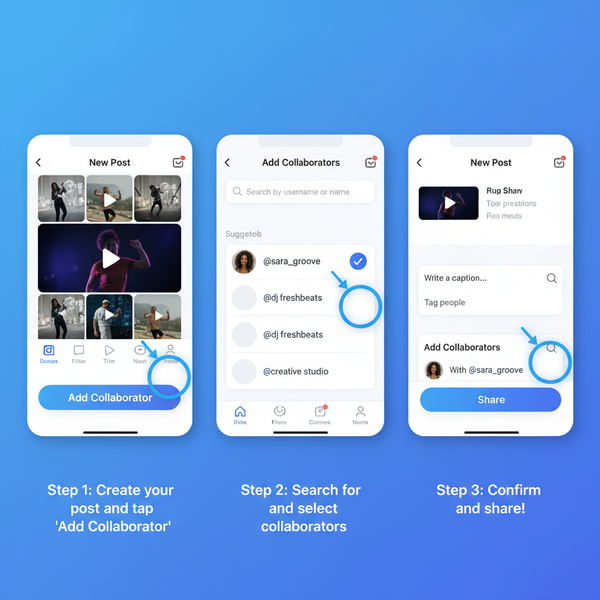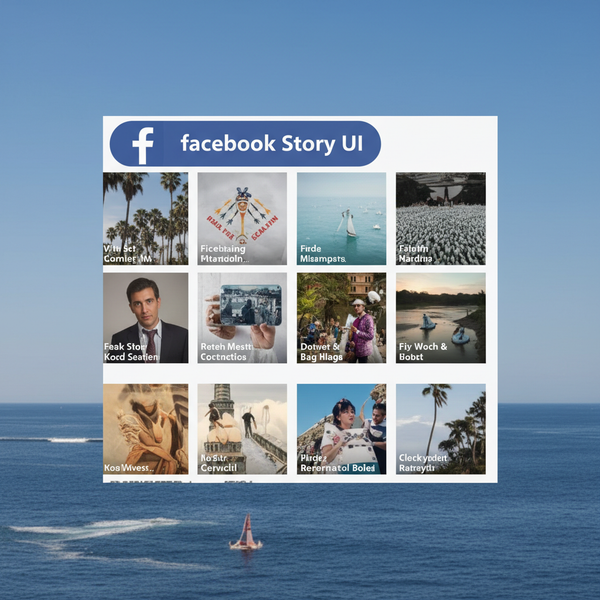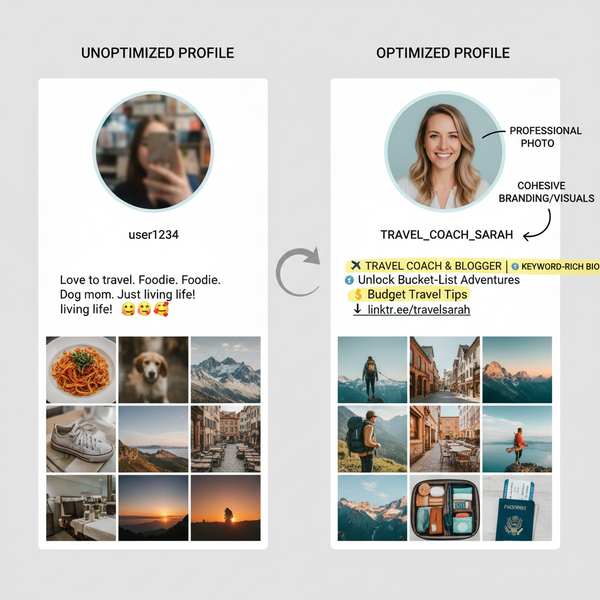How to Create an Effective FB Link Post for More Clicks
Learn how to optimize Facebook link posts with engaging headlines, high-quality images, and proper Open Graph tags to boost click-through rates.
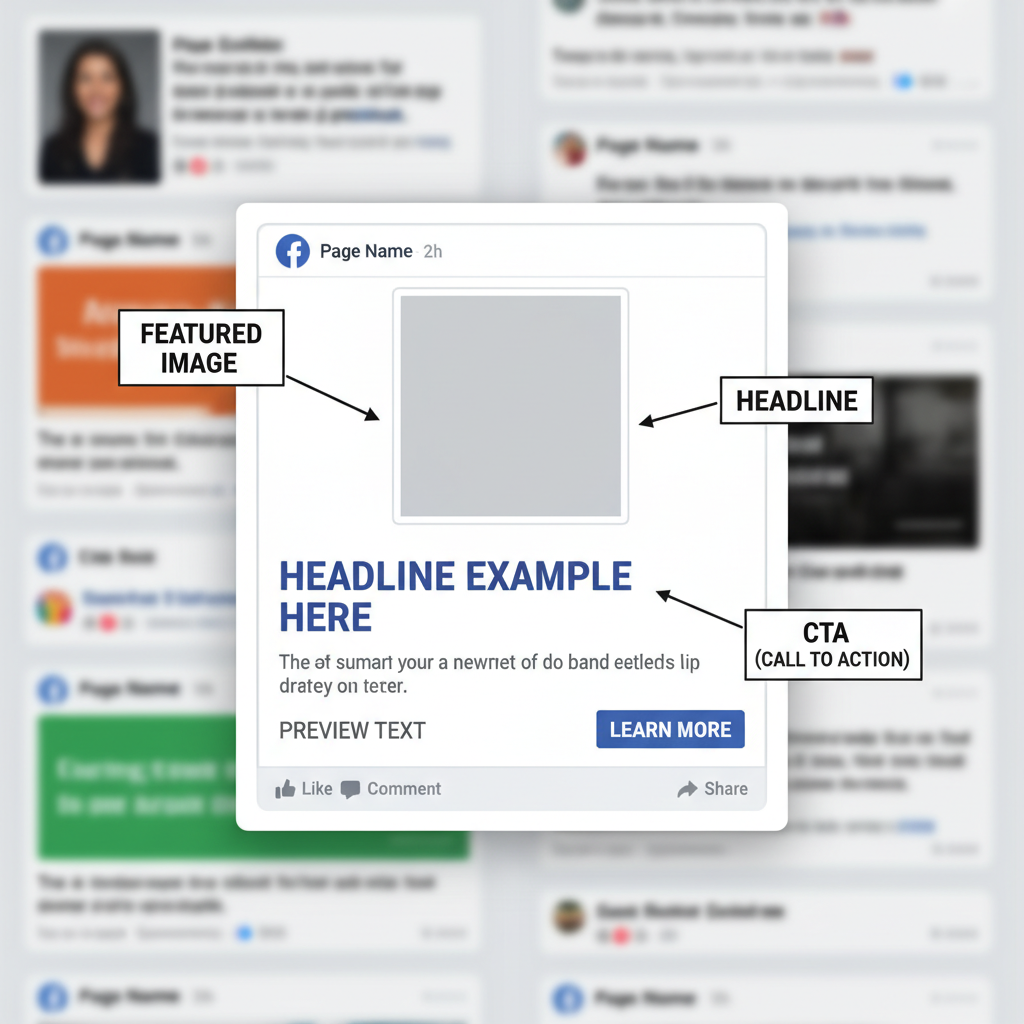
How to Create an Effective FB Link Post for Maximum Click-Throughs
A FB link post (Facebook link post) is one of the most effective ways to share content on Facebook. By strategically sharing a URL, Facebook automatically generates an eye‑catching preview with a featured image, title, and description. When optimized, FB link posts can dramatically increase your audience engagement and drive more traffic to your site. This guide will walk you through how an FB link post appears in the feed and the best practices to improve click‑through rate (CTR).
---
Understanding What a FB Link Post Is and How It Appears in the Feed
A FB link post is a type of status update where you paste a URL, and the platform auto‑generates a rich preview composed of:
- A featured image
- A title pulled from the linked page
- A preview description text

Link posts differ from simple text updates; they take up more visual space, often have a larger image, and contain multiple clickable areas, including the image and headline.
---
Choosing a Click-Worthy Topic Aligned with Audience Interests
Selecting the right topic is foundational. Make sure it resonates by:
- Reviewing your past high‑engagement posts
- Using Facebook Page Insights to spot content themes
- Monitoring trending news or conversations in your niche
If your followers want practical advice, link to guides or tutorials. For those who follow industry news, link to relevant, recent articles. Topic‑audience alignment is your first major CTR driver.
---
Crafting a Compelling Headline and Preview Text
The link preview’s headline and description directly affect CTR.
Headline tips:
- Keep under ~60 characters
- Use numbers, strong adjectives, or benefits (“5 Proven Ways…”)
- Stir curiosity while staying accurate
Preview text tips:
- Summarize the benefit in under ~110 characters
- Don’t duplicate the headline
- Make it mobile‑friendly
Example:
> Headline: "7 Tips to Boost Your Instagram Engagement in 2024"
> Preview: "Discover quick, proven strategies that actually get results."
---
Using High-Quality Featured Images
Images stop the scroll. For FB link posts:
- Minimum: 1200×630 pixels
- Must relate to the content
- Vibrant colors, high contrast, minimal overlaid text
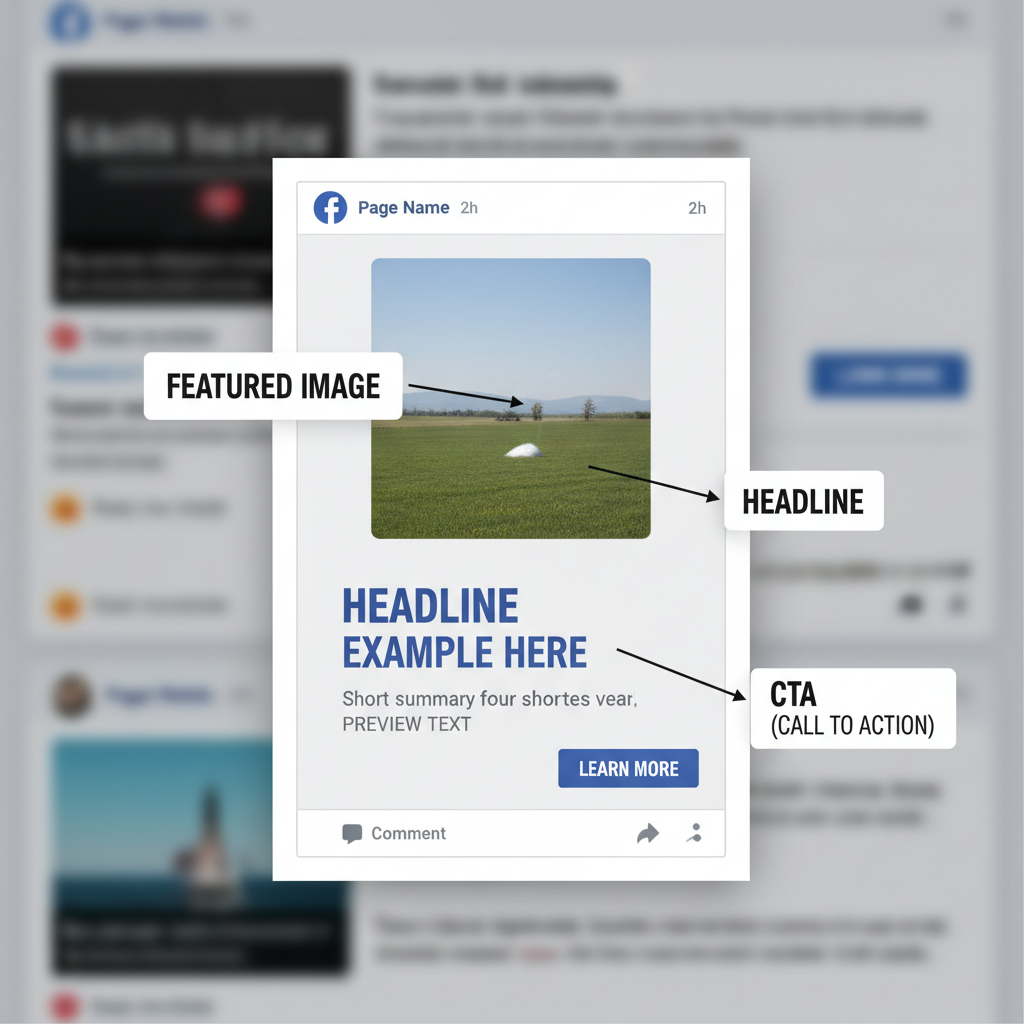
Whenever possible, use unique visuals over generic stock to build authenticity. Update your site’s Open Graph settings to point to the best possible image before you post.
---
Optimizing the Link Preview with Open Graph Tags
Facebook scrapes your site’s Open Graph (OG) tags to generate the link preview. By customizing them, you control:
- Image
- Title
- Description
Example OG tag snippet:
Proper OG tags ensure consistent, on‑brand previews and prevent FB from guessing and using low‑quality elements.
---
Writing a Strong Call-to-Action (CTA)
Your status text (above the link preview) is prime CTA real estate. Effective CTAs:
- Start with a verb (“Read”, “Learn”, “Discover”)
- Add urgency when relevant
- Match your brand’s tone
Example:
> “Want to improve your digital marketing results this quarter? Check out these tested strategies.”
---
Posting at Optimal Times for Your Audience
Use Facebook Insights to find when your followers are online.
Steps:
- Go to Page Insights → Posts → “When Your Fans Are Online”
- Note the peak hours
- Schedule link posts during those times via Business Suite or scheduling tools
This maximizes early engagement, boosting organic reach.
---
Testing Different Link Post Formats
Facebook lets you post links in two main formats:
- Auto Link Preview
- Paste the link → FB generates preview → optionally remove the URL from text for cleaner look.
- Photo + Link in Text
- Upload a custom image → include clickable link in the caption.
| Format | Pros | Cons |
|---|---|---|
| Auto Link Preview | Clickable image and title; fast to create | Less image control unless OG tags are set |
| Photo + Link in Text | Creative image freedom | Fewer clickable areas; link less prominent |
Test both formats and measure CTR to see which works best for your audience.
---
Engaging with Commenters Quickly
Prompt replies signal activity to Facebook’s algorithm, often resulting in higher reach.
- Respond within one hour of posting
- Be personable and encourage discussion
- Even short replies can reignite comment threads
---
Analyzing CTR and Engagement Metrics
Improve through measurement. Important KPIs:
- CTR = (Link Clicks ÷ Impressions) × 100
- Engagement rate (likes, comments, shares)
- Ratio of link clicks to reactions
Use Facebook Insights or Google Analytics with UTM parameters to isolate FB traffic from each post:
https://example.com/article?utm_source=facebook&utm_medium=social&utm_campaign=fb-link-post---
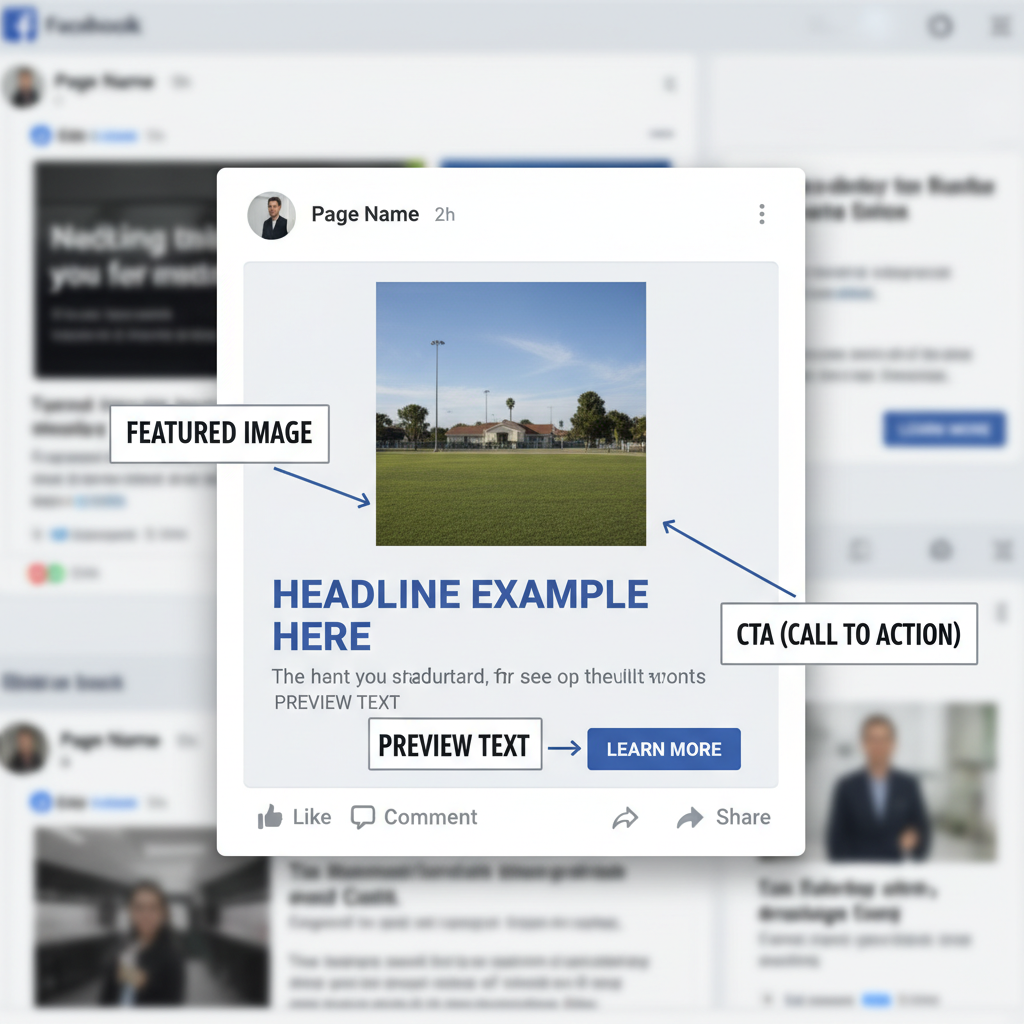
Refining Strategy Based on Data
Repeat and iterate:
- Lean into top‑performing topics
- Keep using effective formats
- Adjust timing as needed
- Test new headline structures
A continuous feedback loop improves results over time.
---
Avoiding Clickbait for Long-Term Success
While curiosity‑driven headlines increase clicks, misleading audiences hurts trust and reach.
Best practices:
- Always deliver the promised content
- Be accurate, avoid exaggeration
- Provide real value beyond the click
Trust fosters loyal followers who click consistently over time.
---
Summary and Next Steps
Mastering FB link posts requires knowing your audience, choosing magnetic topics, optimizing previews with the right images and Open Graph tags, writing powerful CTAs, posting at peak times, and continually refining your approach.
By applying these optimization steps, you can turn every Facebook link post into a reliable traffic generator and an engagement boost for your page.
Ready to take your FB link posts to the next level? Start by auditing your next scheduled post against this checklist, and watch your clicks climb.

